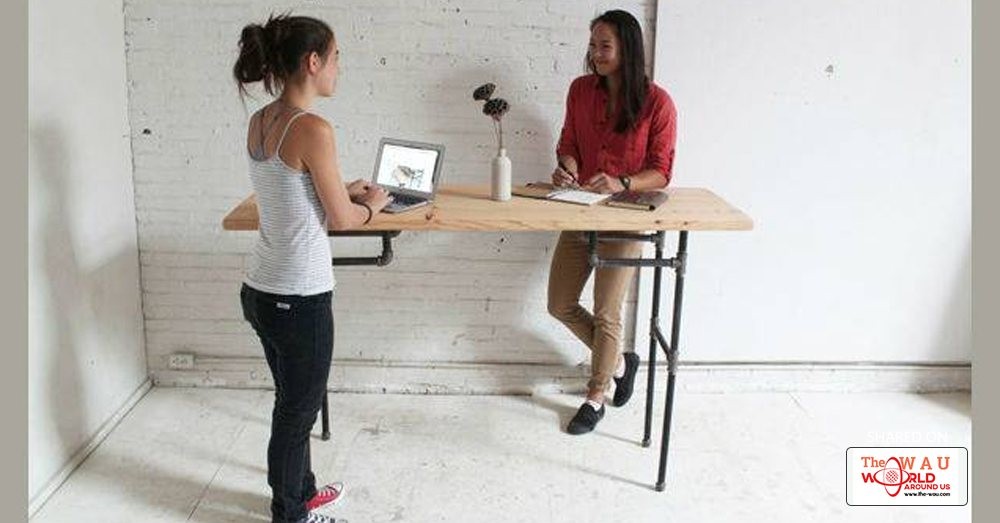Standing desks at workplace can decrease body discomfort and boost productivity by nearly 50 percent, says a study.
The researchers examined the productivity differences between two groups of call center employees over the course of six months.
The findings showed that those with stand-capable workstations - those in which the worker could raise or lower the desk to stand or sit as they wished throughout the day - were about 46 percent more productive than those with traditional, seated desk configurations.
Productivity was measured by how many successful calls workers completed per hour at work.
"This research is a breakthrough in measuring productivity impacts of office workers, as this population of call center workers was directly tied to very objective data on their productivity," said one of the study authors Mark Benden, associate professor at Texas A&M Health Science Center School of Public Health in the US.
The study was published in the journal IIE Transactions on Occupational Ergonomics and Human Factors.
In addition to helping the bottom line of the company, the researchers found that standing during the day can improve worker health.
Nearly 75 percent of those working at stand-capable workstations experienced decreased body discomfort after using these desks for the six-month duration of the study.
"We believe that decreases in body discomfort may account for some of the productivity differences between the two groups," lead author of the study Gregory Garrett from Texas A&M School of Public Health said.
Share This Post















